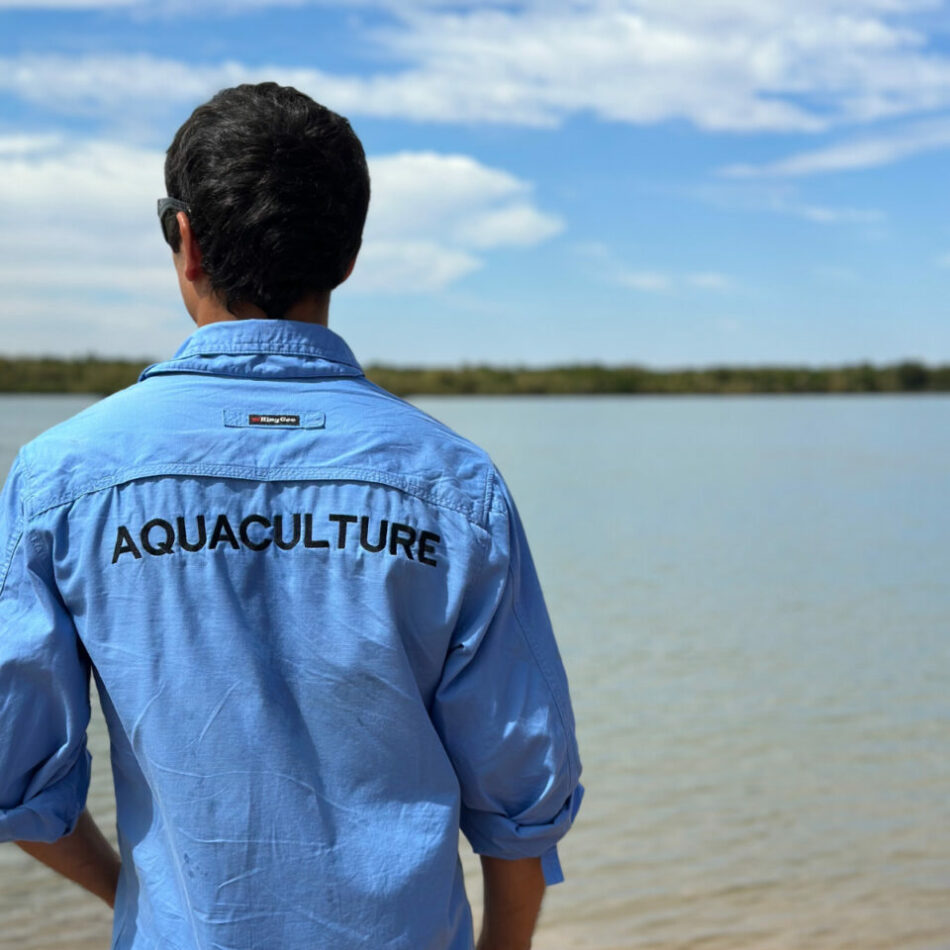The future of the Northern Australian aquaculture industry will be up for discussion when more than 70 industry leaders and representatives meet in Central Queensland this week to discuss the Cooperative Research Centre for Developing Northern Australia’s (CRCNA) Northern Australia aquaculture industry situational analysis study.
The project, led by James Cook University Associate Professor Jennifer Cobcroft, is due to release its final report next month, with the team seeking final input and buy-in from industry stakeholders at the ‘Aquaculture opportunities in Northern Australia: solutions and strategies’ workshop in Rockhampton on Wednesday 5 February.
Associate Professor Cobcroft said the Northern Australian industry is on the cusp of a transformational change – if the right levers of support are put in place.
“Industry projections show growth of the aquaculture industry in Northern Australia is likely to at least double by 2030, particularly with more prawns and barramundi farmed in the tropics.
“By tackling some of the key barriers, the preliminary industry vision is for a 5-fold increase in production and value to a $1 billion p.a. sector by 2030, providing another 850 to 1200 ongoing direct jobs for Northern Australia,” she said.
Currently, there are a variety of new aquaculture developments underway across the north, including Tassal’s prawn farm infrastructure investment in Proserpine and Misson Beach Pacific Bio Ltd’s expansion at Guthalungra, and Seafarm’s ongoing staged investment at sites across Northern Australia.
Assoc. Professor Cobcroft said increased aquaculture development is also happening in the Northern Territory and Western Australia.
“Humpty Doo Barramundi (NT) and Marine Produce Australia (WA) are planning to expand production to 10,000 t and 15,000 t, respectively, representing a 3 to 5-fold increase on current tonnage.
“There are also expansion plans in progress for redclaw (QLD) and sea cucumbers (NT), and some promising emerging aquaculture species, including tropical rock oysters, slipper lobsters (Moreton bay bugs), rock lobsters, and Cherabin,” she said.
The situational analysis project team used surveys and regionally-based stakeholder workshops to identify key challenges and barriers for industry growth in the north and is refining recommendations which have emerged.
Rockhampton Regional Council will host the workshop, with financial backing provided by the Australian Government’s Fisheries Research and Development Corporation (FRDC).
Rockhampton Region Mayor, Margaret Strelow said there is a huge opportunity for sustainable aquaculture development in the Rockhampton region.
“With over 3,500 hectares of land identified as being suitable for aquaculture by the Department of Agriculture and Fisheries, we have this incredible opportunity to tap into this growing industry,” Mayor Strelow said.
“It is a sign of confidence in our Region that Rockhampton was chosen as the location for the workshop and we look forward to hosting experts in the field as we look further into the challenges and opportunities of aquaculture in Northern Australia,” she said.
Media enquiries
Carla Keith, CRCNA Communications Manager 0499 330 051


